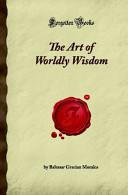
“Knowing how to keep a friend is more important than gaining a new one.”
Saberlos conservar es más que el hazerlos amigos.
Maxim 158 (p. 90)
The Art of Worldly Wisdom (1647)
